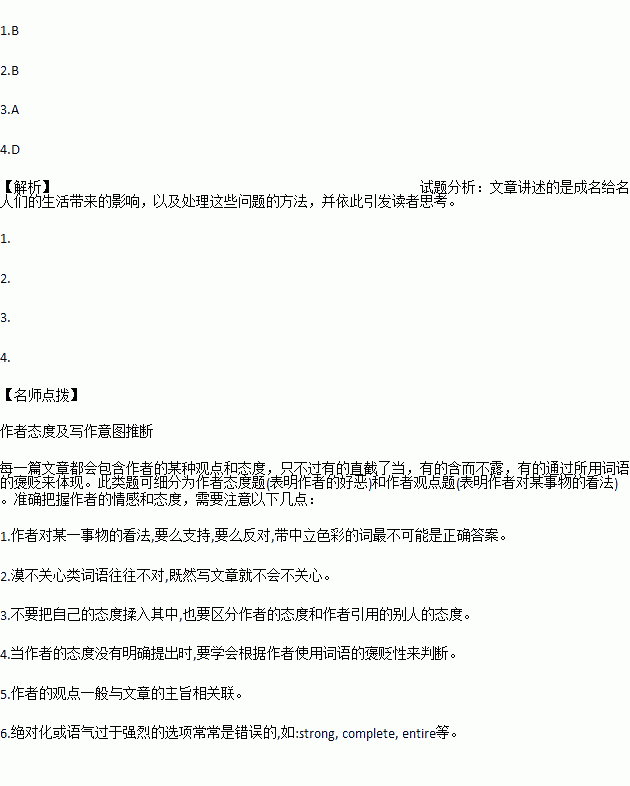题目内容
Does Fame Drive You Crazy?
Although being famous might sound like a dream come true, today’s star, feeling like zoo animals, face pressures that few of us can imagine. They are at the center of much of the world’s attention. Paparazzi (狗仔队) camp outside their homes, cameras ready. Tabloids (小报) publish thrilling stories about their personal lives. Just imagine not being able to do anything without being photographed or interrupted for a signature!
According to psychologist Christina Villareal, celebrities — famous people — worry constantly about their public appearance. Eventually, they start to lose track of who they really are, seeing themselves the way their fans imagine them, not as the people they were before everyone knew their names. “Over time,” Villareal says, “they feel separated and alone.”
The phenomenon of tracking celebrities has been around for ages. In the 4th century B.C., painters followed Alexander the Great into battle, hoping to picture his victories for his admirers. When Charles Dickens visited America in the 19th century, his sold-out readings attracted thousands of fans, leading him to complain (抱怨) about his lack of privacy. Tabloids of the 1920s and 1930s ran articles about film-stars in much the same way that modern tabloids and websites do.
Being a public figure today, however, is a lot more difficult than it used to be. Superstars cannot move about without worrying about photographers with modern cameras. When they say something silly or do something ridiculous, there is always the Internet to spread the news in minutes and keep their “story” alive forever.
If fame is so troublesome, why aren’t all celebrities running away from it? The answer is there are still ways to deal with it. Some stars stay calm by surrounding themselves with trusted friends and family or by escaping to remote places away from big cities. They focus not on how famous they are but on what they love to do or whatever made them famous in the first place.
Sometimes a few celebrities can get a little justice. Still, even stars who enjoy full justice often complain about how hard their lives are. They are tired of being famous already.
1.It can be learned from the passage that stars today___________.
A. are often misunderstood by the public
B. can no longer have their privacy protected
C. spend too much on their public appearance
D. care little about how they have come into fame
2.What is the main idea of Paragraph 3?
A. Great heroes of the past were generally admired.
B. The problem faced by celebrities has a long history.
C. Well-known actors are usually targets of tabloids.
D. Works of popular writers often have a lot of readers.
3.What makes it much harder to be a celebrity today?
A. Availability of modern media.
B. Inadequate social recognition.
C. Lack of favorable chances.
D. Huge population of fans.
4.What is the author’s attitude toward modern celebrity?
A. Sincere. B. Sceptical.
C. Disapproving. D. Sympathetic.



 y a high price for his own behavior. We should all keep in minds: honesty is the best policy.
y a high price for his own behavior. We should all keep in minds: honesty is the best policy.